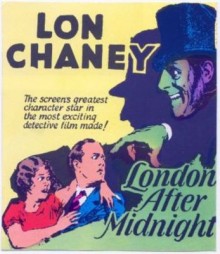LOST: Many novels, lots of paintings, quite a few films … and even a few cities…
#
Heartbreaking cat or dog stories get to some, others get teary when they think about passed loved ones … oh, sure, a sad lost kitten tale will get to me and there are far too many people who are no longer in my life (and are sorely missed) but what gets the waterworks really flowing is thinking about the movies, books, places, paintings, and music that are just … gone.
It’s becoming harder and harder to fathom the idea of anything really being totally missing: this is, after all, the age of the Internet and we are all far-too familiar with the maxim “the web never forgets.” But even a cursory glance at history will bring tears to the eyes of even the most cold-hearted.
For instance, you’ll never watch Lucien Hubbard’s The Mysterious Island; visit Itjtawy, an ancient Egyptian capital; or experience the legendary Amber Room…
Oh, sure, there’s still a chance that some of these treasures – and the thousands of others – might someday reappear, but for now they’ve just disappeared, vanished … gone.
Even cutting down the sob-story list of the missing to just films and a few special books – because, let’s face it, the catalog of paintings and music that can’t be found is simply staggering – leaves a pretty depressing catalog of absent features and tomes.
A few are not just absent but also damned alluring. Sure, more than few of the missing films were very small budget affairs (like some of Andy Warhol and Kenneth Anger’s) but more than a few of them were pretty lavish affairs.
And one is just plain weird. Most of you know kaiju (Japanese big monster movies, for the nerd-impaired). True aficionados of the genre gloat in knowing not just the first kaiji is the legendary Gojira but that it was made in 1954.
 But they’re wrong. In 1938 – 16 years before Gojira — Zenshō Cinema in Tokyo made King Kong Appears in Edo (without permission, it has to be mentioned, as RKO owned the rights to Kong). We know King Kong Appears in Edo existed because of promotional posters and stills, but the film itself has vanished without a trace, possibly destroyed during World War Two.
But they’re wrong. In 1938 – 16 years before Gojira — Zenshō Cinema in Tokyo made King Kong Appears in Edo (without permission, it has to be mentioned, as RKO owned the rights to Kong). We know King Kong Appears in Edo existed because of promotional posters and stills, but the film itself has vanished without a trace, possibly destroyed during World War Two.
 Another tantalizing film that’s on the wanted list is the 1927 silent film London After Midnight, directed by Tod Browning (of Dracula and Freaks fame), and staring the great Lon Chaney. Again, stills and other glimpses have appeared but so far the feature is believed to be totally lost.
Another tantalizing film that’s on the wanted list is the 1927 silent film London After Midnight, directed by Tod Browning (of Dracula and Freaks fame), and staring the great Lon Chaney. Again, stills and other glimpses have appeared but so far the feature is believed to be totally lost.
In some cases, the reason for the missing [fill in the blank] is less dumb luck and more [insert profanity here]: Sir Richard Burton’s translation of The Perfumed Garden, along with many of his other works, were burned by his widow; and Frederick Tatham destroyed many of William Blake’s manuscripts after Blake’s death.
Other times the creators themselves had a hand in the destruction: James Joyce himself burned his play “A Brilliant Career,” and there’s a dubious tale of Ernest Hemmingway throwing an unsuccessful early novel at a charging rhino … but there’s real story if him simply losing a suitcase full of work at a train station.
Additionally, much of Mark Twain’s “Western years” work is missing, and when L. Frank Baum’s theatre caught fire many of his plays were lost.
Occasionally pieces are gone not because they were misplaced or destroyed but – or so it is said — the original appearance was so awe-inspiring that no one thought to record it. That’s the story, anyway, for why there are no records of the famous lost speech of Abraham Lincoln (May 29, 1856).
But as this is Amazing Stories, we should take a sad little detour to our own genre. Oh, sure, there are plenty of depressing little stories of manuscripts that have yet to be found … or never will be … but there are three that are not just sad because they are missing but especially so because of who the author was.
Philip K. Dick was a brilliant writer who spent a very long time writing a phenomenal number of books before fame finally found him. But he’s also mentioned here because of this depressing little fact … well, technically three of them:
No matter how big a fan you are of Dick’s you won’t be able to read his Nicholas and the Higs, because all that exists of it is in a record of a publisher that rejected it in 1958: “Very long, complex story, usual Dick genius for setting. Future society wherein trading stamps have replaced currency and people live hundreds of miles from work (drive at 190 mph), have set up living tracts. Cars often break down, so they have tract mechanic on full-time basis. Mechanic old, has bad liver, seems to be dying. People of tract use general fund to buy pseudo-organ but man is dead for a few days and ‘comes back’ a bit touched. Sub plot concerns man from whom tract got organ (which is illegal), and how his presence causes moral breakdown of people in tract.”
And you won’t be able to read Pilgrim on the Hill (1956) – again, a comment by a publisher is all that remains: “Another rambling, uneven totally murky novel. Man w/psychosis brought on by war thinks he’s murdered his wife, flees. Meets 3 eccentrics: an impotent man who refuses to have sex w/his wife, the wife — a beautiful woman who’s going to a quack dr. for treatment, an animalistic worker w/ambition but no talent. Man has affair w/wife, is kicked out by husband, tries to help slob. Finally collapses, is sent to hospital, recovers, returns home. BUT WHAT DOES IT ALL MEAN?”
Lastly, all that is left of A Time for George Stavros (1956) is “Didn’t like this before & still don’t. Long, rambling, glum novel about 65 yr old Greek immigrant who has a weakling son, a second son about whom he’s indifferent, a wife who doesn’t love him (She’s being unfaithful to him). Nothing much happens. Guy, selling garage & retiring, tries to buy another garage in new development, has a couple of falls, dies at end. Point is murky but seems to be that world is disintegrating, Stavros supposed to be symbol of vigorous individuality now a lost commodity.”
Is there are a lesson to take away from all this I suppose it has to be a two-fold one: if you misplace your car keys, or phone, or debit card try to cheer up that at least you didn’t lose an entire movie, novel, musical composition, or even a whole city – and that if the great Philip K. Dick could not just have three novels rejected but then also misplace them and still go on…
…well, don’t lose the inspiration in that.










